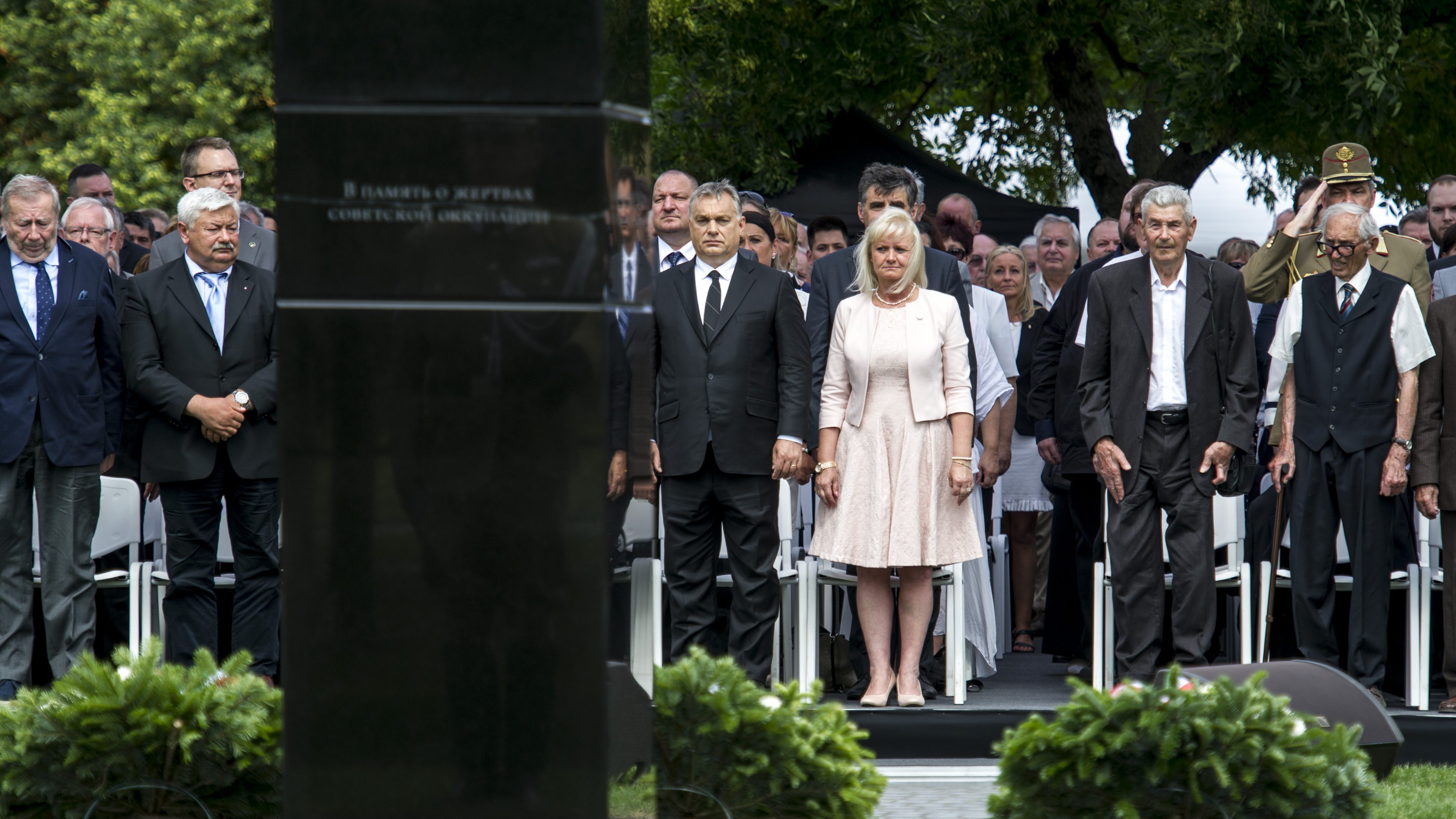
“We paid the price for our weakness, for the loss of our independence, with the abduction, deportation and displacement of hundreds of thousands of people”, said the Prime Minister, who believes that not an inch of Hungary’s sovereignty should be yielded, because “we know full well that if we give them an inch, they will take a mile.”

Mr. Orbán continued by saying that the Gulag Memorial imposes the obligation to create a Hungary in which similar events can never happen again. Therefore, he said, all unreasonable ideas, confused thoughts and plans serving foreign interests must be kept outside the country’s borders.
The Prime Minister said that Europe has been the homeland of both epochal concepts and cataclysmically destructive ideologies: National Socialism, international communism – and, indeed, a modern imperialism which reduced entire peoples to colonial existence – all first reared their heads in lands to the West of Hungary. He stressed that Hungarians should be proud that their country has never created oppressive ideologies and has never sought to condemn anyone to a colonial fate. In his words, “our people are a sober nation, who know that peace, freedom and independence are important not only for us; they therefore respect and recognise other nations’ right to those ideals”.
Mr. Orbán pointed out that in Western Europe the Left extolled communism even after millions had perished under the heel of “red dictatorships”. He added that “in the minds of a number of European politicians, the statues of communist leaders are still standing”, and they are not prepared to acknowledge that the path to the unification of Europe led through the toppling of statues honouring Marx and Lenin. “We know that there is no such thing as a communist regime with a human face: the true face of communism is the Gulag”, he said.

According to the Prime Minister, from time to time the spirit of Marx, Lenin and the re-education camps still emerges in Europe. As an example, he mentioned the result of the Italian election, which “did not reflect Brussels’ preference”, and to which the public reaction of some was that “the markets will teach the Italians how to vote”. There are others, he said, who “want to institute proceedings of all kinds against us, just because we see the world differently from how they do, and because we do not want to become an immigrant country”.
He described the inauguration of the memorial as a tribute to the victims of communism, as a commemoration of those who were forcibly sent the Gulag, of soldiers and civilians, of interrogation cellars and rooms, of confessions obtained through violence and torture, of predetermined death sentences and of the long road leading to the Gulag, and of the many stages of deportation, each of which saw the disappearance of many thousands of victims. He added that we must also remember how for many of those who returned home one labour camp was replaced with a larger one.
The Prime Minister further highlighted that under no circumstances should we take for granted today’s free and democratic world. We should instead see it as something exceptional, as a state of grace which can only be maintained and prolonged if “we are determined never to allow something like this to happen to us again”.
In her address, Erzsébet Menczer, President of the Organisation of Soviet-Deported Hungarian Political Prisoners and Forced Labourers (Szorakész), said that for more than two years over two hundred people had worked so that the memorial could be inaugurated with appropriate dignity.

She highlighted that twenty-seven years ago to the day – on 19 June 1991 – the last Soviet soldier left Hungary, and “we finally became free”.
The former Fidesz Member of Parliament also said that to this day double standards apply, as while there has always been the freedom to condemn the barbarities of the Nazis, communist genocide has been evasively glossed over and re-evaluated. Even after the inauguration of this memorial, she added, the battle against double standards must not stop.
The Gulag Memorial is a ten-metre-tall black granite obelisk standing in a park situated alongside the Budapest thoroughfare Árpád fejedelem útja. Those at the ceremony were told that it pays tribute to people who suffered under an evil and inhumane ideology, who were subjected to forced labour in camps thousands of kilometres from their homes, and who gave their lives for their country and their Hungarian, religious and political identities.
